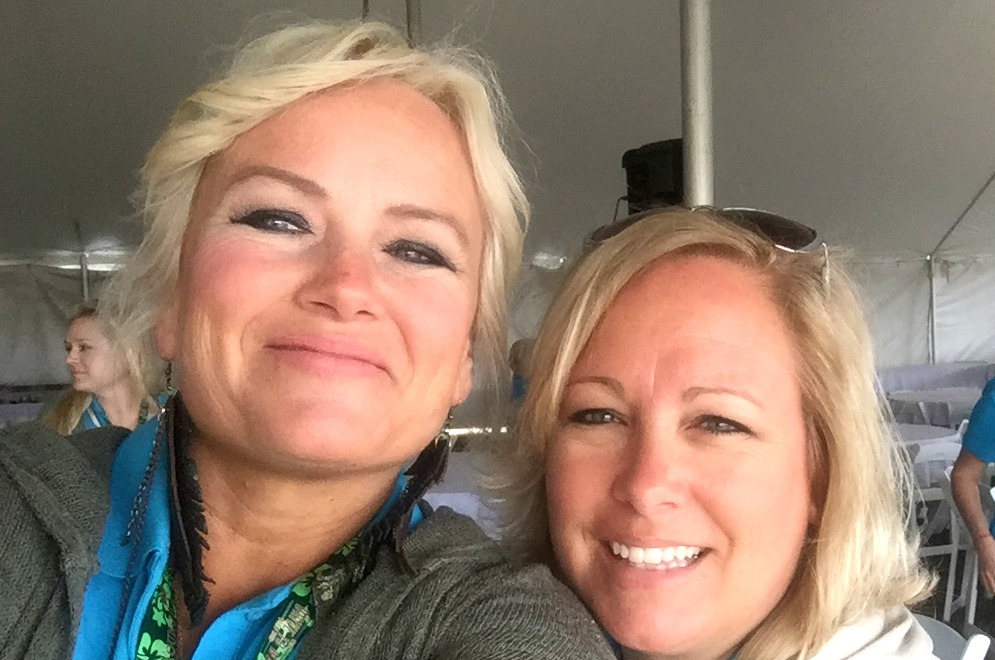Texts: Psalm 107:23-32, Gen. 11:27-12:20, Mark 4:21-41, Luke 15:11
“There was a man who had two sons.”

[This is part of my Lenten devotional study of the prodigal son. Click Here to Download ]

My sister is sixteen months younger than me, and we’ve basically grown up like twins. We have the same laugh, the same accent, nearly the same voice. Mom can’t tell us apart on the phone, which can be quite comical, depending on how long we let her guess wrong. Gina has always been the one with all the spunk and a healthy measure of rebellion. When we were younger, she got spanked for an act of willful five-year-old disobedience, and she was the bravest recipient of a spanking I’ve ever seen. What did I do? Cried the WHOLE ENTIRE TIME. She was too stubborn to shed one solitary tear, but I felt ALL THE SISTERLY THINGS for her and was way more heartbroken than she was about the whole ordeal. You would have thought I was the one getting punished.
I’m still a cry baby, but I’ve never “walked in another man’s shoes” so keenly as then. I’ve sadly become way more calloused to the situations of others. I don’t seem to feel things as acutely as I did back then. I pray for a childlike compassion like that again.
Before we move on in the story of the prodigal today, it might be helpful to pause and consider what hasn’t been said. The younger son has asked for his inheritance. His father has granted it, and he liquidates his portion of the estate and heads for the far country. But what seems to be missing is any word or action from the older brother? Why the silence from him so far?
A few very interesting things that the author of The Cross & The Prodigal, Ken Bailey, makes note of about the older son from the beginning of the story.
- The scandal of the situation would have been known by the whole community by sundown. Certainly by the time the younger son was selling his share, the older brother would have been privy to the whole story, as would the whole community. But there’s no mention so far of the older brother intervening in any way, which he would have been expected to do.
- He silence is his refusal. He refuses to be a mediator between his brother and his father. Ken Bailey, a Presbyterian minister who spent 40 years teaching New Testament in the Middle East, would read this text to townspeople in Middle Eastern towns, and when he would get to this part of the story, he would ask the villagers, “So who must be the reconciler in this story?” “His brother, of course,” they would all agree. The older brother would have known that it was his responsibility to be the mediator for his family, and yet he refuses. We will later meet an older brother (Christ) who is perfectly willing to be the mediator between the Father and His wayward children, and this story sets us up to ask and wonder about what first-born sons would have been expected to do.
- Bailey speculates that it’s all together possible that the arrogance and lack of integrity of the older brother could indeed be part of the reason for the younger leaving. The lion’s share of the father’s inheritance would belong to the oldest son, which would often produce “insufferable arrogance,” possibly making the older brother very difficult to live with.
- Travel in the ancient Middle East would have been treacherous, and the possibility of the son never returning would have been real and felt deeply by the father. Custom of the time would not have allowed the father to plead with the son, because the inheritance situation would have caused estrangement. The older son should have stepped in and begged his brother to stay, but he refuses.
We are plagued with similar circumstances all the time.
We feel the nudge to reach out to someone, to mediate for them, to offer help or kindness, and yet we remain silent. We justify our actions by saying that it’s not really our responsibility, that we don’t want to interfere or insert ourselves into their lives. That we have our own issues to worry about and deal with.
But we are our brother’s keeper.
We are responsible for our sisters. We belong to each other, whether we want to admit it or not. Her suffering is our suffering. Her loss is our loss. Her wounds are our wounds. But we are so often silent, and our silence is deafening. Our lack of interest in others wounds them. And it wounds us, too.
We were made to bear each other’s burdens. It takes us outside ourselves, gives us a purpose beyond our own survival and greed when we speak up for our brother, when we show him how much he means to us.
I urge you to pay attention today. Who is your younger sister who is in need of your love and care? Who can you text or call today that needs a mediator, a friend, a shoulder? Just look around in your life or through your phone contacts or your Facebook friends, and you’ll see a host of people who need you and who were placed in your life for a reason. And actually, don’t even start with your contact list, just look around in your own house. It’s the ones we live with who need us the most, whose burdens we can lighten, whose lives we can sweeten.
And what we’ll find in the end is that living for others is the way we were made to live. It’s the way of the cross. It’s the message of Lent. Arms open, hearts open, giving ourselves away, just like Christ has given Himself as the perfect older brother to us.







